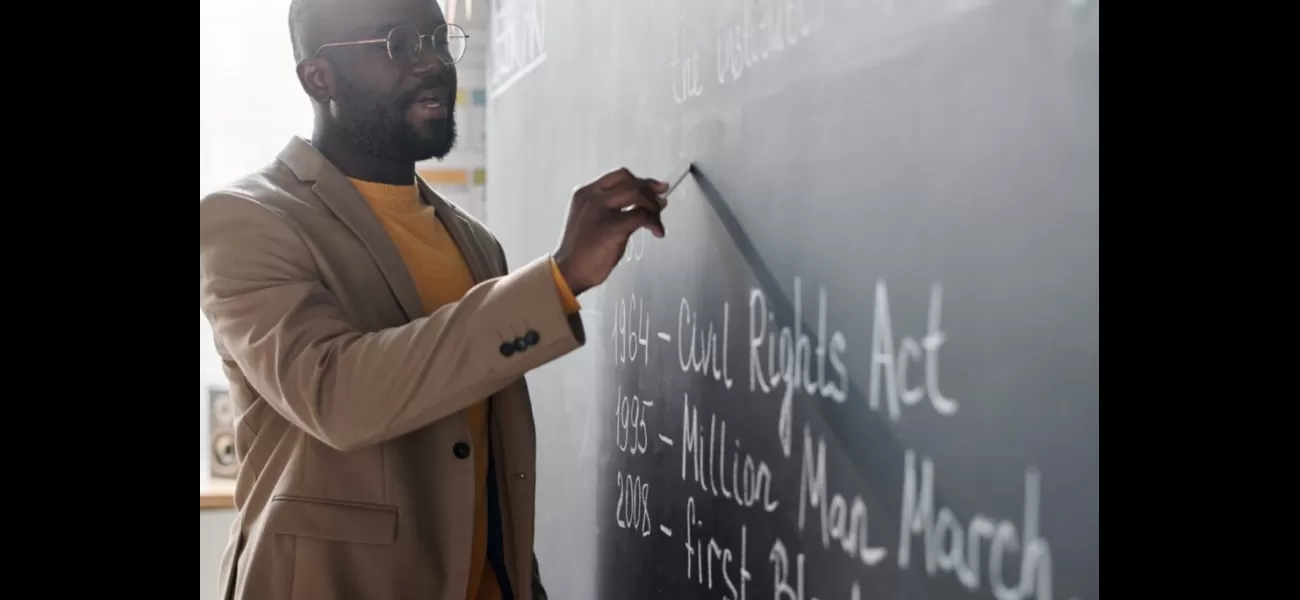Former students of Rosenwald schools continue to preserve the legacy of these historic schools.
Rosenwald and Washington created a nonprofit to help educate Black children in the south, now graduates work to preserve the schools' legacy.
February 5th 2024.

The Rosenwald Schools were a beacon of hope for Black people in the Southern United States during a time of segregation and Jim Crow laws. These schools, founded by Sears Roebuck president Julius Rosenwald in partnership with Booker T. Washington, provided education for Black children in the South. While there were once over 5,000 of these schools, less than 10% remain today, making it crucial to preserve their legacy. One such school, the Lee-Buckner school in Tennessee, is currently the focus of a battle for preservation by alumni and advocates.
In an article by CNN, it was revealed that the Lee-Buckner school is set to be relocated to a historical site in Franklin, Tennessee. This move is part of a $35 million capital campaign by the Heritage Foundation of Williamson County, with plans to open the school for tours in 2025. Bari Beasley, president and CEO of the foundation, believes that it is important to tell the whole story of the school and its significance in Black history. She believes that having difficult conversations can help us better understand the world around us and work towards making it a better place.
The Lee-Buckner school holds a special place in the hearts of its graduates, many of whom went on to become prominent figures in Black history, such as late congressman John Lewis and poet Maya Angelou. These graduates are integral in maintaining the legacy of the school, as it serves as a physical reminder of the struggle for education during a time of strife. This struggle is still relevant today, as many states face the removal of Black history lessons from their curriculum.
Rachael Finch, a historian at the foundation, expressed the importance of education for African Americans after the Civil War. Access to education meant access to knowledge and power, which could lead to success in business, homeownership, and land ownership. The Rosenwald Schools became a symbol of hope for the Black community, and their legacy must be preserved for future generations.
With its new home in a historic site, the Lee-Buckner school will forever be remembered as a vital part of Black history. It stands as a testament to the determination and resilience of those who fought for education in the face of adversity. As we continue to strive for progress and equality, it is crucial to remember and honor the legacy of the Rosenwald Schools and the impact they had on Black communities across the country.
In an article by CNN, it was revealed that the Lee-Buckner school is set to be relocated to a historical site in Franklin, Tennessee. This move is part of a $35 million capital campaign by the Heritage Foundation of Williamson County, with plans to open the school for tours in 2025. Bari Beasley, president and CEO of the foundation, believes that it is important to tell the whole story of the school and its significance in Black history. She believes that having difficult conversations can help us better understand the world around us and work towards making it a better place.
The Lee-Buckner school holds a special place in the hearts of its graduates, many of whom went on to become prominent figures in Black history, such as late congressman John Lewis and poet Maya Angelou. These graduates are integral in maintaining the legacy of the school, as it serves as a physical reminder of the struggle for education during a time of strife. This struggle is still relevant today, as many states face the removal of Black history lessons from their curriculum.
Rachael Finch, a historian at the foundation, expressed the importance of education for African Americans after the Civil War. Access to education meant access to knowledge and power, which could lead to success in business, homeownership, and land ownership. The Rosenwald Schools became a symbol of hope for the Black community, and their legacy must be preserved for future generations.
With its new home in a historic site, the Lee-Buckner school will forever be remembered as a vital part of Black history. It stands as a testament to the determination and resilience of those who fought for education in the face of adversity. As we continue to strive for progress and equality, it is crucial to remember and honor the legacy of the Rosenwald Schools and the impact they had on Black communities across the country.
[This article has been trending online recently and has been generated with AI. Your feed is customized.]
[Generative AI is experimental.]
0
0
Submit Comment





